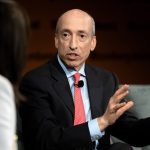During the garage-stage and Zoom-room days of a company’s life, fluidity can feel key to idea creation. The lack of contractual obligations is baked into how we understand the origin stories of the most famous startups. We celebrate rapid pivots, love scrappy MVPs over perfectly polished platforms and pay attention to repeat entrepreneurs who raise money for their next idea before they even know what it is. The ability to quickly spin up a team and launch something is clearly the core of what makes startupland so special (and, candidly, fun to write and talk about).
Yet, even though the amorphous beginning of a startup can feel energizing beyond belief, formality matters. There’s a difference, both in ownership and weight, between a founder, a founding team member, an adviser, an investor, an angel investor and an early employee. As shown by the Winklevoss twins versus Facebook, Reggie Brown versus Snapchat and, most recently, Avi Dorfman versus Compass, disputes can often arise simply because of differing definitions on all of the above.
“I don’t think it’s the title of the agreement that is magic; I think it’s just thinking through how you’re going to deal with the different possible scenarios.” Jonathan Harris, managing partner, law firm Harris St. Laurent & Wechsler
While the string of high-profile legal cases shows just how pervasive, and common, founder disputes have been for years, the current startup environment makes me think that there could be a jolt of new disagreements ahead of us. Why? Well, there’s a number of factors that could spark a fire right now: frenetic funding, a wild startup formation environment and the glorification of being a disjointed team with no titles — just passion and whiteboards.
Startups and movements need to establish clear governance to manage expectations and avoid late-stage conflict. While this formalization is easier said than done, it’s often a process dictated by your ability to confront, have conversations and, most of all, be transparent.
What else causes a rift, if not money and power?
Akshaya Dinesh, the former co-founder of Ladder, once got rejected from an accelerator program because she didn’t have a good answer to who the CEO was.
“This was before we had even fundraised anything, and it was just the two of us working on it,” she said. “We said something like, ‘We’re very early and we’re both technical so we’re kind of doing everything together,’ but if we had to choose it would be X.” Later, the entrepreneur said, she realized that the “right answer” is to confidently give a name and give a clear distinction of what each person’s focus areas at the company are and will evolve to be.
“Titles are one of the biggest reasons why co-founders have conflicts, so they’re trying to assess how comfortable you are having tough conversations early,” she said. The stress test is likely why one of the classic YC interview questions is “Who’s the CEO?” (Dinesh went on to raise millions from Alexis Ohanian’s Seven Seven Six Ventures, DoorDash, Harry Stebbings, Pear VC and Forerunner).
Techstars investor Saba Karim agreed with the notion that, after lack of product-market fit, the biggest startup killer is co-founder conflict. “And what else do you think causes a rift, if not money and power?” he said.
“What you decide today may not hold true in two years, or even two months, so it’s crucial there are cliffs and vesting schedules put into place,” he said. While the investor hasn’t noticed an uptick in founder conflicts or title inflation in the current climate, he thinks written agreements are important to prioritize once there is funding or revenue in the picture.
Plus, somewhat counterintuitively, Karim thinks an equal split of equity between everyone on the founding team is an adverse sign.
Powered by WPeMatico






